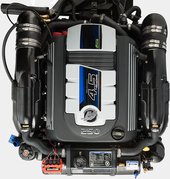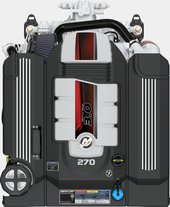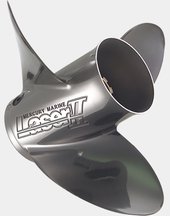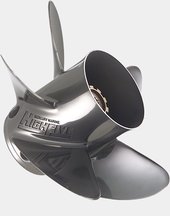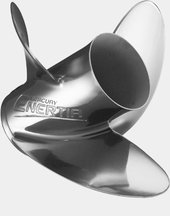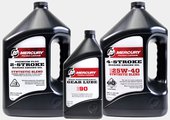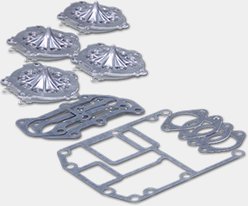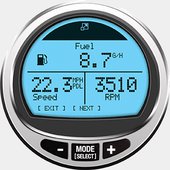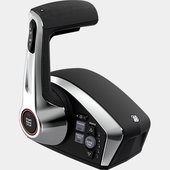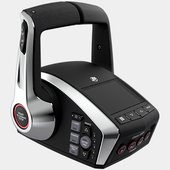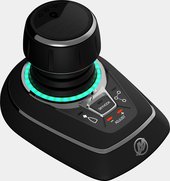
Pro Angler Q&A: Tackle Prep
Mercury Pro Team members weigh in on how they prep their bass fishing tackle.

The professional bass anglers who compete on the Bassmaster Elite Series and Major League Fishing (MLF) Bass Pro Tour face the regular task of organizing, updating and maintaining a large collection of fishing tackle. It’s a chore, but it’s part of the job. The lessons they’ve learned and the systems they use can help average anglers improve their own tackle management and efficiency.
To learn more, we posed some tackle-related questions to three Mercury Pro Team members: Elite Series pro John Crews, of Salem, Virginia; MLF pro Bradley Roy, of Lancaster, Kentucky; and Elite Series pro John Cox, of DeBary, Florida.
How do you decide when it’s time to replace items like hooks, fishing line, rods and reels, and lures?
John Crews: I replace hooks when they are not sticky sharp anymore. If you feel the tip is bent over, replace it. I don't try to sharpen them when the tip has rolled.
Line is a tricky deal. If you keep your guides clean, line lasts a while. A good way to tell if you need to replace it is to feel that it is not smooth anymore. For reference, grab a new spool of line and compare it to the line on your reel. If there’s a big difference in the texture, you know for sure it is time to change your line.
Bradley Roy: I go through hooks like crazy. At every tournament, I start with fresh hooks on everything. I change them on many different scenarios – after several fish catches, if I see damage from them hitting rocks or metal cover – and I almost always replace them when they get bent. It’s terrible to do everything right and then have a hook fail. So, I change all of mine. Often what causes a big fish to get off is a weak hook.
For soft plastics, I change them as soon as they won’t stay on the hook anymore. If it’s sliding down, I change it. You need that bait to stay straight every cast.
On hard baits, I try never to replace my baits until they absolutely quit running as they should. I have learned that no matter what, all baits aren’t the same. So, when you find one that catches fish, use it until it falls apart.
John Cox: I replace line every tournament, hooks every day, rods and reels every couple of years, and baits when they are destroyed beyond repair.
For hooks, maybe I’m a little too paranoid, but if I miss a fish or two, a lot of people might change baits; I change the hook. My theory is that missed fish come from damaged hooks even where the naked eye may not see the damage. So, if you miss one, swap it out. That’s probably all in my head, but it’s what I do.
With my braided fishing line, when I fish it super hard for lots of hours, it starts to get little “furries” when you look very close, and that’s when I know to change it out.
On rods and reels, I seem to get an attachment to certain ones, and I’ll use them until the guides fall off.
I have some hard baits that I’ve had since I started fishing. I usually don’t retire one unless it’s earned a big win or is just so worn that it looks like it may break on the next bite.
When do you do most of your gear prep?
John Crews: I do a lot of my organization during the winter, and I try to go through all my tackle in fine detail. Then, during the season, it takes me about eight to 12 hours of boat and tackle prep per tournament. I try to do a walk-through at least a week or so before I leave in case I need to order anything.
Bradley Roy: I do most of my tackle prep during the winter, but as I grow older, I do more throughout the year. Staying on top of it during the year seems to help. The best time to organize is not last minute.
John Cox: I do most of my organization in November and December. That’s right, two full months of it. It’s probably my most hated thing to do. I instantly start procrastinating, fixing stuff at the house or trying to work out anything not to have to organize tackle, but I eventually get it done.
Where do you do most of your tackle prep and why?
John Crews: I do all my tackle prep in the garage. Because I do spend so much time on it, lighting and climate control are important. My garage has heat and air, and it makes an optimal environment.
Bradley Roy: It’s important to do all tackle prep in one place, and for me, that’s the garage. I pull my boat and my truck in the garage and organize all my gear with an eye on not only what I need to take, but also where it is going to be stored in the boat or the truck for the trip. I think ahead to future tournaments, too. We fish all over the country, sometimes driving long distances, so if there is tackle I need for a future tournament but don’t need it for the very next one, I will organize that gear but leave it in the garage.
What do you do with your “gently used” gear?
John Crews: I have a lot of people that gobble up my older equipment. Some are family, friends, employees and more.
Bradley Roy: What I do with used gear depends on what it is and how I got it. If I had to buy it, often I would sell it. If it were a sponsor-given product, I would try to donate what I can to local high school fishing teams or other anglers that could use it.
John Cox: I give most of my used gear away. For soft-plastic baits like the Berkley General, I use them Texas-rigged in a tournament, and when they get ripped, it’s time to just put a new one on. I throw the old ones on the floor of the boat. Then, when I get a couple of days off and go fishing with the kids, we’ll just use the ones on the floor.
Any final helpful tidbits or hacks on maintaining or replacing tackle?
John Crews: A great tip for hook and hard-bait boxes is to put little silica packets (like the ones that come in shoeboxes) inside to help keep moisture out. I use waterproof SPRO boxes that stay dry, but sometimes you have to open them in the rain or a humid area. Those little packets really help keep rust out.
Bradley Roy: Never let a 5-cent bait keep you from catching a bass. I’m all about saving money, but if that worm falling down the hook is keeping you from getting bit, change it out
Get Organized!
All three pros indicated that tackle prep is far from their favorite part of being a professional angler. Still, it’s a necessary evil when playing the game at the highest level. Sponsorships certainly help, but pro anglers do still have to buy a lot of gear, so taking care of their equipment helps their bottom line. And staying organized is critical for efficiency in competition. Now, do they sometimes go to extremes with the frequency they change their line or hooks during tournament season? Maybe. But can you blame an angler for not taking chances when they have so much more than just fish on the line?
To learn more from these Mercury Pro Team anglers and to track their careers, you can follow them on social media.
Instagram: @johncrewsbassfish, @bradleyroyfishing and @johncox_fishing.
Facebook: @JohnCrewsMissile , @probradleyroy and @johncoxfishing.


